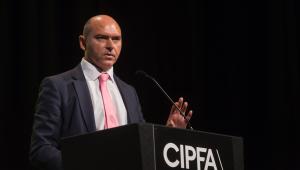This was because the NHS would be unable to react fast enough to changes as it lacked the capacity to make efficiency savings on this scale while maintaining service levels.
The savings were intended as a contribution to plugging the £30bn gap in the NHS’ finances, but such a radical transformation was not a realistic possibility by 2020, CIPFA said.
Chief executive Rob Whiteman blamed “insufficient will to improve productivity” for the service’s predicament.
CIPFA’s report The Health of Health Finances also warned the savings the NHS had to make might exceed £30bn because of Conservative manifesto pledges such as increasing seven-day working in the NHS.
Pay restraint was also likely to become harder to deliver – even with the 1% cap on annual pay increases issued in last month’s Budget – while the introduction of the National Living Wage would put further pressure on NHS costs.
This would mean that even were the £22bn of savings delivered, the £8bn of additional support from government would still be insufficient to meet the demands placed on the service.
The only options open to the government were to take the controversial step of charging patients to use some services – such as a fee to see a doctor – to reduce services or to increase funding.
Whiteman said: “The NHS is beset by a Five-Year Forward View and resource assumptions that will not add up.
“System leadership is needed with less short-term promises and more medium-term financial planning.”
He said the NHS could not though solely blame its problems on a lack of resources.
“There is insufficient will to improve productivity, encouraged by the prevailing expectation and culture that more state funding will continue indefinitely,” he said.
“This is simply not sustainable and we urgently need to do away with this approach, plan for the long term and secure greater integration of health and social care services to lessen long term spending pressures and better manage future demand.”
Whiteman also called for debate between politicians and the public about what kind of NHS would be needed in the next 10 to 20 years.
CIPFA urged ministers to protect the £5.3bn Better Care Fund to join up the NHS and social care systems and to support ‘invest to save’ projects to save money on back office services.
The institute’s warning follows calls from Monitor and the NHS Trust Development Authority for trust boards to refocus their attention on financial control. Letters send to trust chairs and chief executives warned that current spending plans were “unaffordable”.



















